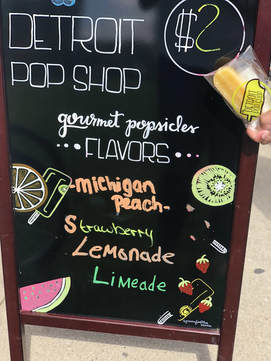|
My first exposure to social entrepreneurship came at the hands of my grandfather, early in high-school. He had recently retired and migrated into the world of microfinance. As I researched the topic, I stumbled upon the work of Muhammad Yunus, the father of microlending and the founder of the Grameen bank. That was my first experience pondering the notion of innovation and profit-generation for social good, and now, five years later, I am immersed within a culture of social entrepreneurship in Detroit. My fundamental ideas about the definition of social entrepreneurship haven’t changed too much; I still see the term describing the desire so many of today’s young minds to use their creativity, resilience and innovation to tackle society’s most pressing issues. My experiences in Detroit have taught me that social entrepreneurship fills in gaps left by more traditional business models. My conversations with Detroit Food Academy staff and other social entrepreneurs in the area have shown me that traditional businesses need to cater to state and federal government concerns and have almost no incentive to drive change on the community level. When I reflect on social entrepreneurship in Detroit, I find myself thinking back to concepts I learned in my second-level economics class. I learned that there was a difference between typical demand curves and those that factored in “societal benefit”, and that the government attempts to utilize subsidies and taxes to bridge this gap. At the time, I simply memorized the information and formulas because I was afraid of failing my final, but my time working in Detroit has brought this information to life. Social entrepreneurships factor societal benefit into their business models. The idea that their innovation changes lives and makes the world a better place is the motivation that pushes social entrepreneurs to continue innovating and thinking outside of the box. In other words, government intervention is unnecessary because the incentive to do good in the world is one based in morality and not in financial gain. My colleagues at Small Batch Detroit attempt to sell their three products (Mitten Bites, Slow Jams and popsicles) and profit maximize by reducing costs and increasing revenue like any other business. The difference is that they do this to fund Detroit Food Academy, a non-profit that seeks to uplift high-schoolers through food-based entrepreneurial experiences. Small Batch and DFA have created an innovative solution and business model to address a problem in Detroit; joblessness and the various obstacles the youth of the city face. In an environment where the current system requires government intervention to galvanize actions toward social change, there is no doubt in my mind that social entrepreneurship has changed Detroit and the world for better.
1 Comment
Anna
6/18/2018 08:00:37 pm
I like that you're thinking of how social entrepreneurship relates to our governmental systems. It sounds like you're considering whether or not conscious capitalism could supplant our existing structures for social support? It's an interesting idea and one that I look forward to seeing you explore this summer!
Reply
Leave a Reply. |
Archives
July 2022
Categories
All
|

 RSS Feed
RSS Feed
